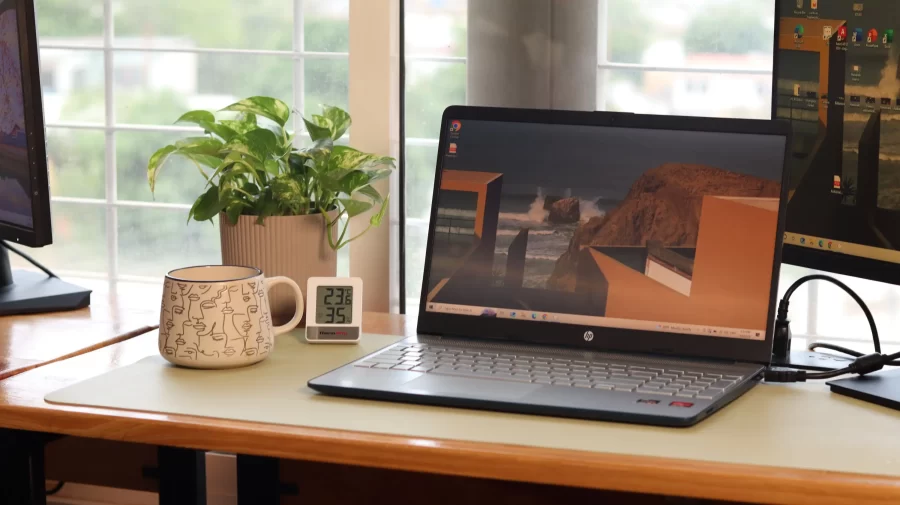Small businesses are increasingly becoming targets of cybercrime. The rising cyber security threat poses a significant risk to small businesses’ operations and sensitive data. Small companies must prioritize robust IT security measures to safeguard their networks, systems, and customer data from cyber threats.
Implementing strong IT security protects sensitive information and helps maintain the trust of customers and partners. Moreover, by hiring expert IT security freelancers, small businesses can save money while strengthening their defense against potential cyber-attacks.
Hiring full-time IT security professionals can be a significant financial burden for small businesses. In addition to the salaries, benefits, and overhead costs associated with full-time employees, there are also training and ongoing education expenses to keep the IT security team updated on the latest threats and technologies. This can add to a substantial investment for small businesses with budget constraints.
Why Consider Cyber Security Freelancers?
Cost Savings
The significant cost difference between in-house IT staff and freelance IT security professionals lies in several factors, such as salary, benefits, and office space. Full-time IT staff typically require a regular salary, benefits including healthcare, retirement contributions, paid time off, and more.
Additionally, overhead costs are associated with providing office space, equipment, and other resources for in-house employees. On the other hand, freelance IT security professionals are typically hired on a project basis. They are responsible for their benefits and workspace, resulting in substantial cost savings for the business.
One of the advantages of hiring freelance IT security professionals is the flexibility to scale services up or down based on the specific needs of your business. Freelance IT security professionals can also improve service delivery and reliability by engaging with teams and addressing potential errors.
Whether you require additional support during a busy period or need to scale back after a project is completed, freelance professionals offer the flexibility to align their services with your changing requirements. This agility can benefit small businesses with fluctuating IT security needs.
Access to a Global Talent Pool
Tapping into a wider pool of skilled IT security professionals in Latin America offers several benefits. First, it provides access to a diverse talent pool with varied skill sets and expertise in IT security. This diversity can bring fresh perspectives and innovative approaches to addressing cybersecurity challenges. The diverse knowledge of IT security professionals in Latin America can lead to enhanced security measures for businesses.
Additionally, IT security professionals in Latin America often offer competitive rates compared to their counterparts in other regions, which can result in cost savings for businesses. This can be particularly advantageous for small businesses with limited budgets that still require top-notch security expertise.
Furthermore, leveraging the talents of IT security professionals in Latin America can also provide language and cultural advantages for businesses operating or seeking to expand in the Latin American market. Professionals fluent in local languages and familiar with regional cybersecurity concerns can be invaluable for companies looking to establish a solid regional presence.
Tapping into the skilled IT security professionals in Latin America can bring cost-effectiveness, diverse expertise, and regional advantages to businesses seeking to bolster their cybersecurity capabilities.
In addition to their technical expertise, IT security professionals in Latin America often possess strong language skills, including fluency in Spanish and Portuguese. This language proficiency can benefit businesses seeking to communicate effectively and navigate cybersecurity concerns in the Latin American market.
Expertise When You Need It
Hiring freelance IT security specialists with specific skill sets relevant to your business needs offers several advantages. By seeking out specialists with expertise in the areas of IT security most pertinent to your business, you can ensure that you get tailored and focused support.
First and foremost, specialists with relevant skill sets can provide targeted solutions to address your business’s unique cybersecurity challenges. Whether it’s expertise in network security, cloud security, application security, or any other specific area, having specialists with in-depth knowledge can lead to more effective and customized security measures. Skills like ethical hacking are crucial for identifying vulnerabilities and protecting data and networks.
Furthermore, these specialists will likely be up to date with the latest trends, technologies, and threats related to their specific areas of expertise. This means they can provide proactive and informed guidance, helping keep your business ahead of emerging security risks.

Hiring specialists with specific skill sets can also contribute to overall cost savings. Instead of maintaining a full-time team with a broad range of skills, you can bring in specialists on an as-needed basis, optimizing resource allocation and maximizing the impact of your security budget.
Finally, specialists with relevant skill sets can offer valuable insights and recommendations for improving your security infrastructure. Their deep understanding of specific security domains can lead to the implementation of more robust and targeted security measures tailored to your business needs.
In conclusion, hiring freelance IT security specialists with specific skill sets relevant to your business needs can result in more effective, efficient, and customized security solutions, ultimately strengthening your overall cybersecurity posture.
Finding & Hiring Top Network Security Freelancers in Latin America
Qualities to Look for in an IT Security Freelancer
When hiring an IT security freelancer, it’s essential to consider a range of skills and experiences that can help protect your business’s digital assets. Some essential qualifications and experience to look for include:
Creating and implementing security policies for staff is also crucial to ensure data security.
1. Security Certifications
Certified Information Systems Security Professional (CISSP): This certification demonstrates a broad range of knowledge and expertise in information security.
Certified Ethical Hacker (CEH): Individuals with this certification can identify vulnerabilities in systems and networks and provide valuable insights into potential weak points in your organization’s security infrastructure. Additionally, vulnerability assessment is crucial in identifying and addressing security weaknesses.
Certified Information Security Manager (CISM): Individuals with a CISM certification have demonstrated their capability in managing, designing, and assessing an enterprise’s information security program.
2. Expertise with Specific Security Tools and Technologies
Experience with industry-standard security tools such as intrusion detection systems (IDS), intrusion prevention systems (IPS), firewalls, antivirus software, and data encryption systems.
Proficiency in security information and event management (SIEM) tools for real-time security alerts and events analysis.
Knowledge of identity and access management (IAM) solutions to securely manage user identities and access permissions.
Familiarity with penetration testing tools and techniques to simulate cyber attacks and identify vulnerabilities.
Ability to work with cloud security platforms and services, understanding the unique security considerations in cloud environments.
Use various security tools to monitor and analyze security alerts, investigate incidents, and identify vulnerabilities.
3. Hands-on Experience with Vulnerability Assessment
Demonstrated experience conducting security assessments, risk analysis, and developing comprehensive security strategies.
Proven track record in implementing and maintaining adequate security controls and measures against cyber threats.
Incident response and forensic analysis skills to effectively handle security breaches and investigate security incidents.
Emphasizing the importance of maintaining and securing security systems, including cloud, AWS, and software solutions.
4. Knowledge of Compliance and Regulatory Standards
Familiarity with industry-specific compliance regulations such as GDPR, HIPAA, PCI DSS, and others based on the nature of the business operations.
Understanding best practices for compliance with data protection laws and regulations to ensure the organization’s security practices align with legal requirements. It is crucial to ensure compliance with these laws and regulations to align security practices with legal requirements.
When evaluating potential IT security freelancers, assessing their expertise in these areas can help ensure they possess the skills and knowledge necessary to strengthen your organization’s cybersecurity defenses.
The Hiring Process
The process for hiring an IT Security Expert will vary depending on the platform you decide to hire.
For example, when hiring with Freelance Latin America, you’ll start by filling out this form with your information and telling us what you are looking for in a remote worker. Once you submit the form, we will look for a profile that perfectly matches your needs.
Subsequently, we evaluate numerous profiles and send you the best candidates. Then, you can determine and interview whoever you want, as many times as you want, for free.
Once you choose who will be your next remote worker, we will formalize the hiring, and the onboarding begins. Integrating security practices into software development processes is crucial to ensure secure software solutions.

Building a Successful Working Relationship with Your IT Security Freelancer
Clear Communication & Expectations
Clear communication is essential for successful collaboration with a remote IT Security Analyst. It’s crucial to clearly define the project scope, deliverables, and deadlines from the outset. This helps ensure that both parties are aligned on expectations and working towards the same goals. Additionally, staying up to date with the latest security threats is vital to provide adequate security measures.
Clearly outlining the project’s scope helps the IT Security Analyst understand the specific tasks and objectives for which they are responsible. This can include detailing the systems or networks to be assessed, the type of security testing to be performed, or the specific security measures to be implemented.
Establishing clear deliverables is essential for tracking progress and measuring success. Whether it’s a comprehensive security assessment report, recommendations for improving security posture, or implementing specific security controls, both parties must clearly understand what will be delivered upon project completion.
Setting realistic deadlines and milestones is also critical. Remote IT Security Analysts need to know when specific tasks or phases of the project are expected to be completed. At the same time, businesses must be mindful of the Analyst’s capacity and availability when setting timelines.
Regular check-ins and updates throughout the project can help ensure everything is on track. This can be facilitated through video calls, emails, or project management tools to maintain open lines of communication and address any potential issues proactively.
Businesses can foster a productive and successful working relationship with remote IT Security Analysts by establishing clear communication regarding project scope, deliverables, and deadlines.
Security Protocols & Data Protection
Establishing clear data security protocols when working with remote IT security freelancers is crucial for protecting sensitive business information. Remote freelancers may need access to confidential data and systems, so it’s essential to outline data handling, storage, and transmission guidelines. Identifying and addressing potential security vulnerabilities is critical to protect sensitive business information.
This should include secure communication methods, encryption requirements, access controls, and protocols for reporting and addressing security incidents. By setting clear expectations and security measures, businesses can mitigate risks and ensure remote freelancers adhere to the same high standards as in-house employees.
Secure communication channels and data encryption tools are essential to protect sensitive information and ensure safe data transmission. Secure communication channels, such as encrypted messaging apps and virtual private networks (VPNs), help prevent unauthorized access to confidential conversations and data exchanges.
Data encryption tools, including encryption software and protocols, are crucial for encoding data to make it illegible to unauthorized users. By utilizing secure communication channels and data encryption tools, businesses can strengthen their overall IT security and protect against cyber threats.
Building Trust & Long-Term Partnerships
Fostering a positive working relationship with your IT security freelancer can yield several benefits. Firstly, it creates a more collaborative and communicative environment where both parties feel valued and understood.
This can lead to better alignment of goals and priorities, resulting in more effective security measures. Maintaining high-security standards is crucial to ensure these measures are reliable and effective.
Additionally, a positive working relationship can enhance trust and reliability, leading to smoother project management and quicker response times in case of security incidents. Lastly, maintaining a good rapport with your IT security freelancer can result in long-term cost savings, as they may be more willing to offer competitive rates and prioritize your business’s needs.

In addition to the benefits of cost savings and access to a global talent pool, hiring expert IT security freelancers can also open up the possibility of building long-term partnerships with reliable and skilled professionals.
By consistently working with freelancers who understand your business’s specific security needs and consistently deliver high-quality results, you can establish trust and develop a long-term collaboration that benefits both parties.
This partnership can lead to a deeper understanding of your organization’s IT security landscape and enable freelancers to provide more targeted and effective support over time.
Conclusion
Hiring IT security freelancers offers numerous benefits for small businesses, including cost savings, access to a global talent pool, flexibility to scale services, and expertise when needed. Small businesses can save money by hiring freelance IT security professionals while strengthening their defense against potential cyber-attacks. Computer security is crucial in protecting small businesses from cyber threats.
The significant cost difference between in-house IT staff and freelance IT security professionals is salary, benefits, and office space. Accessing a wider pool of skilled IT security professionals offers the advantage of diverse expertise, cost-effectiveness, and regional benefits.
Hiring freelance IT security specialists with specific skill sets also ensures tailored and focused support, leading to more effective and customized security measures.
Are you a small business looking to bolster your cybersecurity capabilities while minimizing costs? Considering IT security, freelancers might be the solution you need. Hiring expert IT security freelancers can save money and strengthen your defenses against potential cyber-attacks.
These freelancers offer cost-saving advantages, access to a global talent pool, and expertise that aligns with your business needs.
Don’t overlook the potential benefits of IT security freelancers when securing your business in today’s digital landscape!
See more articles by Andrea Corona.





